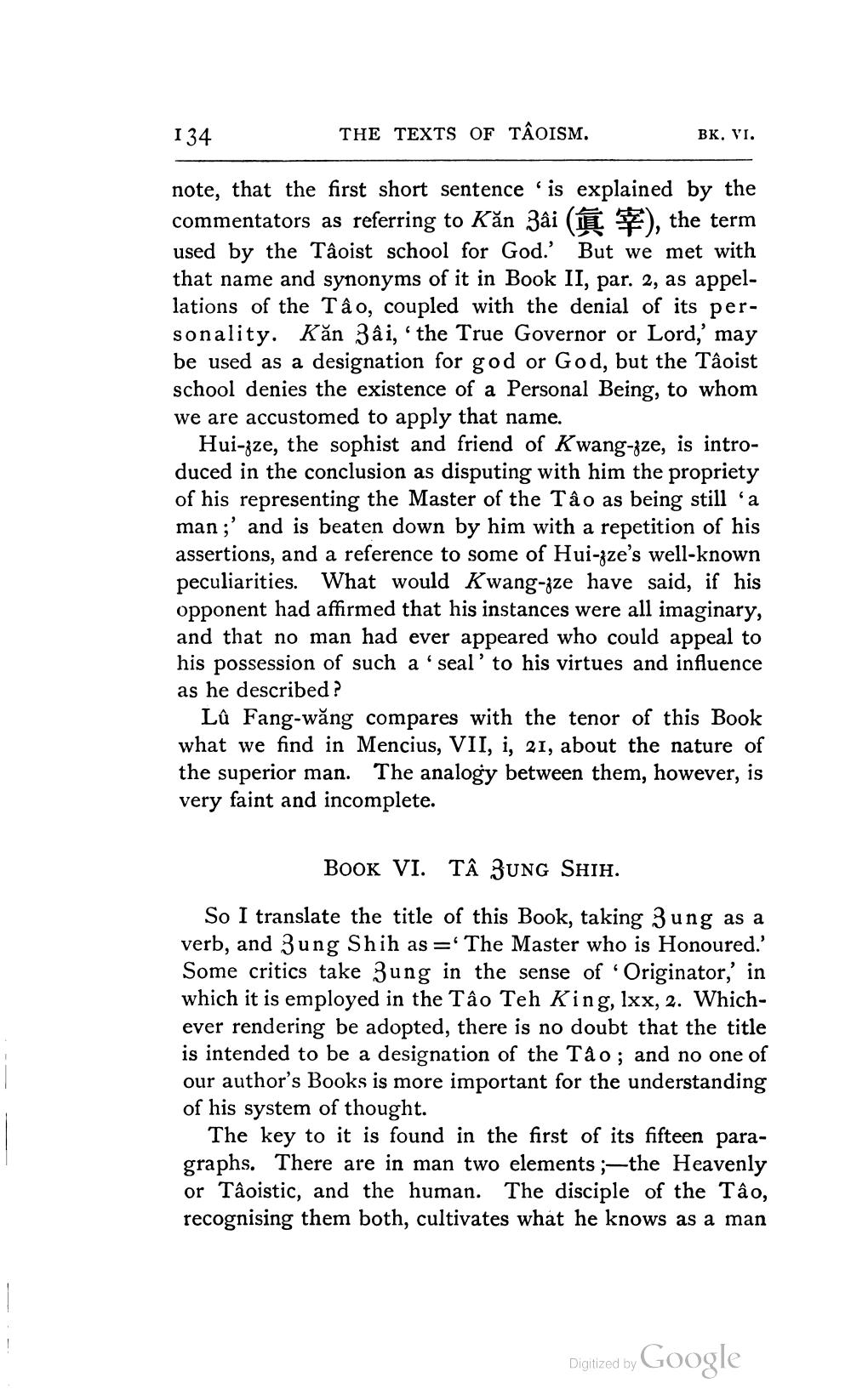________________
134
THE TEXTS OF TÂOISM.
BK. VI.
note, that the first short sentence'is explained by the commentators as referring to Kăn Zâi ( #), the term used by the Taoist school for God.' But we met with that name and synonyms of it in Book II, par. 2, as appellations of the Tâo, coupled with the denial of its personality. Kăn Zâi, the True Governor or Lord, may be used as a designation for god or God, but the Taoist school denies the existence of a Personal Being, to whom we are accustomed to apply that name.
Hui-zze, the sophist and friend of Kwang-zze, is introduced in the conclusion as disputing with him the propriety of his representing the Master of the Tâo as being still 'a man;' and is beaten down by him with a repetition of his assertions, and a reference to some of Hui-zze's well-known peculiarities. What would Kwang-zze have said, if his opponent had affirmed that his instances were all imaginary, and that no man had ever appeared who could appeal to his possession of such a 'seal' to his virtues and influence as he described ?
Lû Fang-wăng compares with the tenor of this Book what we find in Mencius, VII, i, 21, about the nature of the superior man. The analogy between them, however, is very faint and incomplete.
BooK VI. TA BUNG SHIH.
So I translate the title of this Book, taking Z ung as a verb, and Zung Shih as='The Master who is Honoured.' Some critics take Zung in the sense of Originator,' in which it is employed in the Tâo Teh King, lxx, 2. Whichever rendering be adopted, there is no doubt that the title is intended to be a designation of the Tảo; and no one of our author's Books is more important for the understanding of his system of thought.
The key to it is found in the first of its fifteen paragraphs. There are in man two elements ;—the Heavenly or Tâoistic, and the human. The disciple of the Tâo, recognising them both, cultivates what he knows as a man
Digitized by Google




